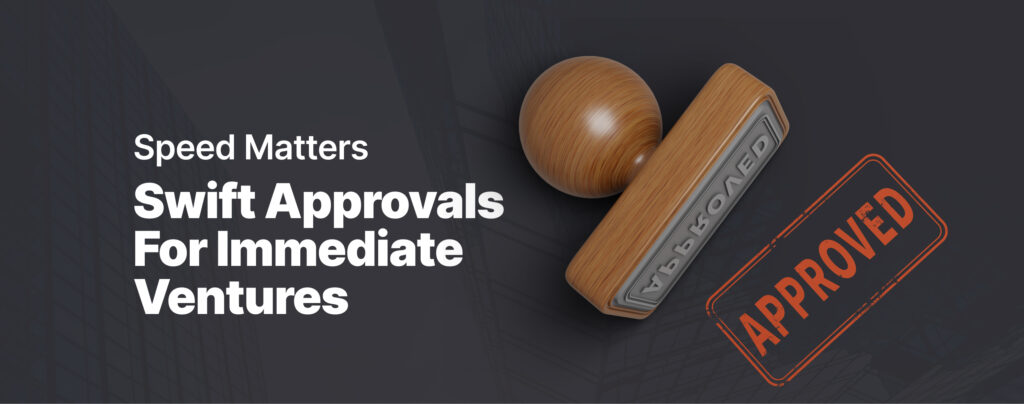Loans > Business Loans

Ready to take your business to the next level? Explore the possibilities of growth and success with our dynamic business loans tailored to meet your entrepreneurial aspirations.
Don’t let financial constraints hold you back from achieving your goals. Take advantage of business loans and unlock your company’s full potential.

A business loan is a financial product that provides a lump sum of capital to a business, allowing it to cover various expenses, investments, or operational needs.
Businesses often seek loans to fund expansion, purchase equipment, manage cash flow, or navigate challenging periods. These loans can be obtained from traditional banks, credit unions, online lenders, or government-backed programs.
The terms of business loans vary, including interest rates, repayment schedules, and loan amounts, depending on factors like the borrower’s creditworthiness and the purpose of the loan. Business loans play a crucial role in helping companies achieve their goals and maintain financial stability.
There are several types of business loans available, however, they are categorized under secured and unsecured loans.
1. Secured Business Loans
2. Unsecured Business Loans
A business loan works by providing a lump sum of money to a business, which is then repaid over time with interest. The process involves several steps:
1. Application: The business applies for a loan, providing necessary financial documents and information about the purpose of the loan.
2. Approval: The lender reviews the application, assessing the business’s creditworthiness, financial health, and the intended use of the funds.
3. Terms and Conditions: If approved, the lender specifies the loan amount, interest rate, repayment terms, and any collateral requirements.
4. Funding: Once the terms are agreed upon, the funds are disbursed to the business, either as a lump sum or in installments.
5. Repayment: The business repays the loan over the agreed-upon period, following the set repayment schedule, which may be monthly or according to another arrangement.
6. Interest Payments: In addition to the principal amount, the business pays interest, which is the cost of borrowing.
7. Completion: Once the business fulfills the repayment terms, including interest, the loan is considered fully repaid.
1. Flexibility

Business loans offer versatile financial solutions tailored to meet various business requirements. They come with adaptable structures designed to accommodate diverse needs, ensuring that the acquired capital aligns precisely with the company’s objectives.
Whether it’s for working capital, expansion, equipment purchase, or other operational necessities, business loans can be customized to suit specific demands. This flexibility allows businesses to allocate funds strategically, optimizing their utilization and contributing significantly to achieving operational efficiency and growth.
2. Competitive Rates

One of the compelling benefits of business loans is the access to capital at competitive interest rates. Lenders provide businesses with funds at rates that are often more favorable compared to alternative financing options.
These competitive rates minimize the financial burden on businesses, enabling them to leverage borrowed funds effectively. Lower interest rates translate to reduced borrowing costs, preserving capital and maximizing returns on investments, thereby enhancing the company’s profitability and financial stability.
3. Quick Access to Capital

Business loans facilitate swift approvals and disbursements, providing companies with prompt access to much-needed capital. The streamlined application process and efficient procedures ensure that businesses can seize immediate opportunities without facing delays due to lengthy approval periods.
This quick access to funds empowers enterprises to respond promptly to market trends, invest in time-sensitive opportunities, address sudden financial needs, or capitalize on growth prospects as they arise. The agility gained through rapid capital acquisition fosters agility and competitiveness in the business landscape.
Business loan eligibility is determined by factors such as creditworthiness, financial stability, a solid business plan, collateral for secured loans, industry type, positive cash flow, years in operation, favorable debt-to-income ratio, and adherence to legal requirements.
A comprehensive business plan, stable financial performance, and a positive credit history enhance eligibility. Meeting lender-specific criteria and clearly defining the purpose of the loan contribute to increased chances of approval.

Obtaining business loans involve several steps to increase your chances of approval. Here’s a step-by-step guide on how to get a business loan:
1. Determine Your Business Needs
Define the purpose of the loan. Whether it’s for expansion, working capital, equipment purchase, or other needs, having a clear understanding of why you need the funds will help you choose the right type of loan.
2. Assess Your Creditworthiness
Check your personal and business credit scores. Lenders often consider credit history when evaluating loan applications. Aim to improve credit scores if they’re not optimal by paying bills on time and reducing outstanding debt.
3. Prepare Necessary Documentation
Gather essential documents such as business financial statements (balance sheets, income statements), tax returns (personal and business), business licenses, bank statements, business plan and any other relevant financial records required by lenders.
4. Research Loan Options
Explore different types of business loans available, including traditional bank loans, SBA loans, lines of credit, equipment financing, or alternative lenders. Compare interest rates, terms, and repayment options to find the most suitable loan for your needs.
Securing a business loan with bad credit requires strategic steps. Begin by reviewing your credit report for errors and addressing inaccuracies. A co-signer with good credit can enhance your application. Explore alternative lenders known for more lenient credit requirements, and consider offering collateral for a secured loan.
Emphasize your business’s positive aspects, such as steady cash flow and a well-structured business plan. Applying for smaller secured loans and showcasing credit improvement efforts can increase your chances of approval.
Repaying a business loan involves understanding the terms, setting up a dedicated repayment account, and opting for automatic payments to ensure punctuality. Budgeting appropriately and prioritizing timely payments help prevent financial strain. Open communication with the lender is essential, especially in challenging times, to explore possible solutions.
Considering early repayment, if feasible, can reduce overall interest costs. Regularly monitoring business finances ensures alignment with repayment commitments. By adhering to these practices, businesses can navigate the loan repayment process smoothly and maintain a positive financial relationship with the lender.
When seeking for a business loan, consider key factors like competitive interest rates, favorable repayment terms, and transparent fee structures. Evaluate the loan amount to ensure it meets your business needs, and weigh the advantages and drawbacks of secured versus unsecured options.
Understand the credit requirements, specifying the loan’s purpose, and assess the necessity of providing collateral. Research the lender’s reputation, scrutinize terms and conditions, and prioritize an efficient application process.
Excellent customer support is crucial. By thoroughly considering these aspects, you can make informed decisions that align with your business’s financial goals and capabilities.